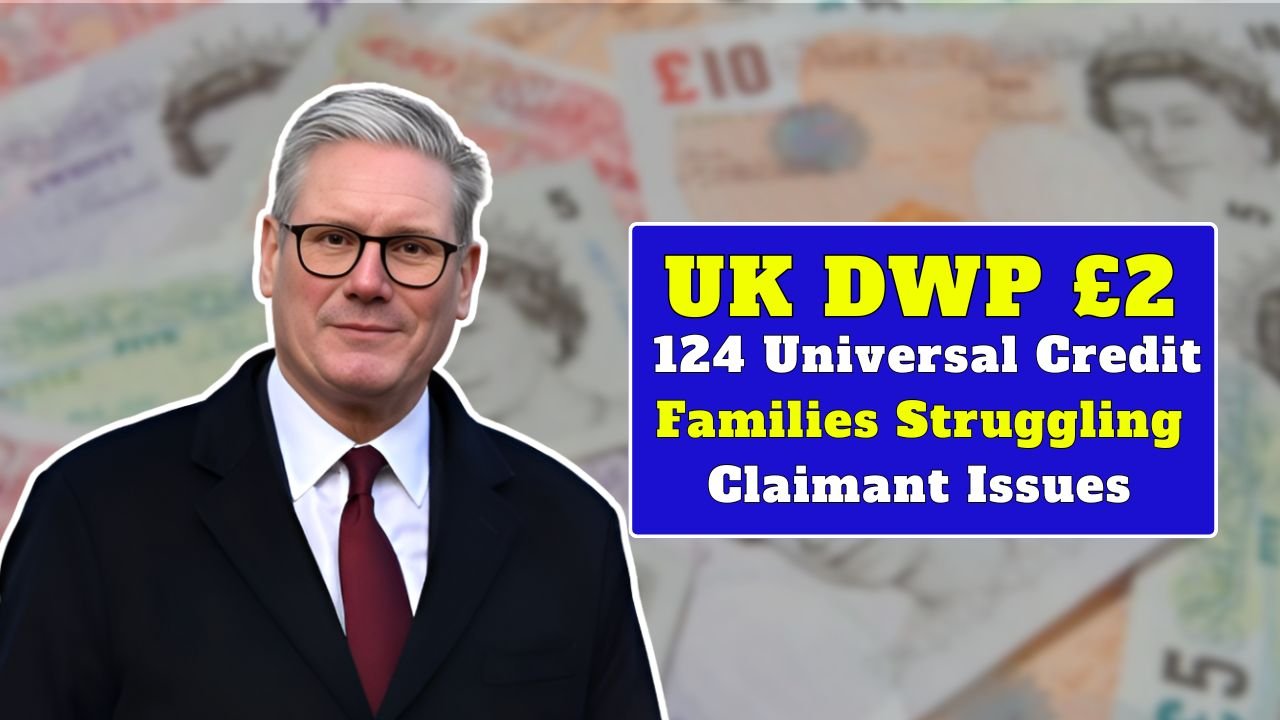Join on WhatsApp
Get the latest updates directly on WhatsApp – motivation, news & more!
Universal Credit was designed to provide vital financial support to millions of families across the United Kingdom, particularly those with low incomes or facing financial difficulties. However, recent reports show that overpayment errors are leaving some households in unexpected debt, creating stress and hardship. One claimant has come forward to warn others after receiving a shocking notice of a £2,124 overpayment, which has left their family struggling to cope.
This case highlights a growing concern about the way overpayments are handled by the Department for Work and Pensions (DWP) and the impact it has on vulnerable families. Here is a detailed look at what happened, why overpayments occur, and what claimants can do if they face a similar situation.
The Shocking Overpayment Notice
A couple relying on Universal Credit to make ends meet recently received a letter from the DWP stating that they owed £2,124 due to an overpayment. For them, this amount was not just a figure on paper; it represented months of financial pressure, worry about rent, food, and bills, and uncertainty about how to recover from the unexpected debt.
The claimant explained that the overpayment came without warning, and there was no clear explanation of how such a large error had occurred. As repayments were deducted from their ongoing Universal Credit, the family saw their monthly income reduced, making it harder to cover everyday costs.
Why Do Overpayments Happen in Universal Credit?
Overpayments are more common than many people realise. They can occur for several reasons, often outside the claimant’s control. Some of the main causes include:
- Delays in updating income or employment details reported to the DWP
- Errors in calculating entitlement due to fluctuating earnings or benefits
- Miscommunication between HMRC and the DWP regarding tax or work information
- Technical or administrative mistakes within the Universal Credit system
In many cases, claimants are unaware of any overpayment until they receive an official notice. Unfortunately, even when the error is caused by the system, it is still the claimant who is required to pay the money back.
The Impact on Families
For families already struggling with the rising cost of living, an overpayment demand can be devastating. The sudden deduction of money from their benefits often means they have to choose between paying bills, buying food, or keeping up with rent.
In this case, the couple described sleepless nights and constant stress as they tried to figure out how to manage their reduced income. They warned other claimants to regularly check their Universal Credit accounts and keep detailed records of income, payments, and communication with the DWP.
The psychological toll is also significant. Many claimants feel powerless against a system that seems to penalise them for mistakes they did not make. This leads to anxiety, frustration, and a sense of injustice.
Can Claimants Challenge an Overpayment?
Yes, claimants do have the right to challenge or appeal against a Universal Credit overpayment. The process, however, can be complex and time-consuming. The main steps usually include:
- Requesting a detailed explanation of the overpayment from the DWP
- Submitting evidence to show that the overpayment was not the claimant’s fault
- Applying for a mandatory reconsideration if they believe the decision was incorrect
- Appealing further to an independent tribunal if the reconsideration is unsuccessful
Claimants can also request a reduction in repayment amounts if the deductions leave them without enough income to cover essential costs.
Advice for Those Facing Overpayment Issues
If you receive an overpayment notice, it is important not to panic but to act quickly. Here are a few practical steps:
- Check your Universal Credit account for details and compare them with your own records.
- Contact the DWP immediately to request a breakdown of how the overpayment was calculated.
- Seek independent advice from organisations such as Citizens Advice, which can help with appeals.
- If repayment deductions are too high, ask the DWP for a lower repayment plan.
- Keep all communication in writing whenever possible to avoid misunderstandings.
A Growing Concern for the Future
The number of Universal Credit claimants has increased over the past few years, especially during economic uncertainty and rising inflation. As more families depend on the benefit, the issue of overpayments is expected to grow unless systemic changes are made. Critics argue that the government must improve transparency, accuracy, and communication to prevent innocent claimants from falling into debt.
Families like the one that received the £2,124 notice highlight the human cost of administrative errors. While Universal Credit remains a lifeline for millions, these overpayment cases show the urgent need for reforms.
Conclusion: A Warning for Claimants
The case of the £2,124 Universal Credit overpayment serves as a warning to all claimants across the UK. Overpayments can strike without notice, and repayment demands can place huge strain on families who are already financially vulnerable.
Claimants are urged to regularly review their Universal Credit accounts, report any income changes promptly, and keep thorough records. Most importantly, those affected should remember that they have the right to challenge decisions and seek support when needed.
As this issue gains more attention, there is hope that the DWP will take steps to improve its processes and prevent further hardship for struggling households. Until then, awareness and vigilance remain the best tools for families navigating the challenges of Universal Credit.

